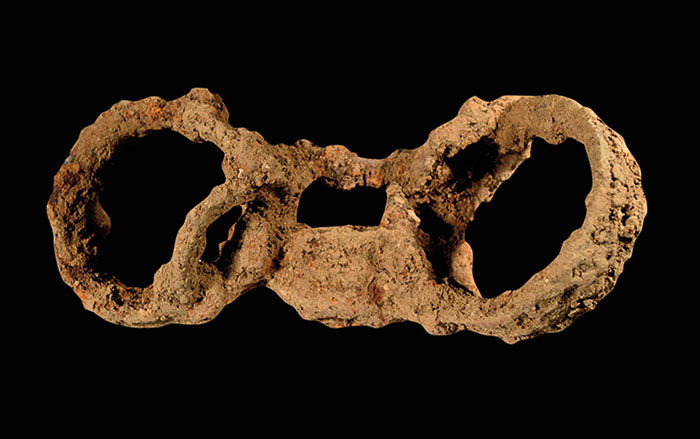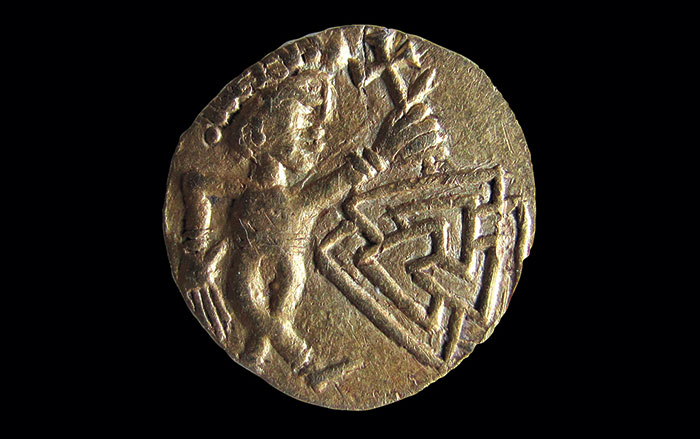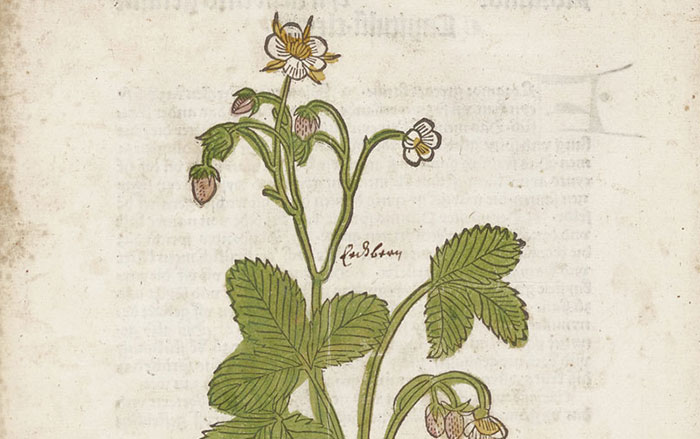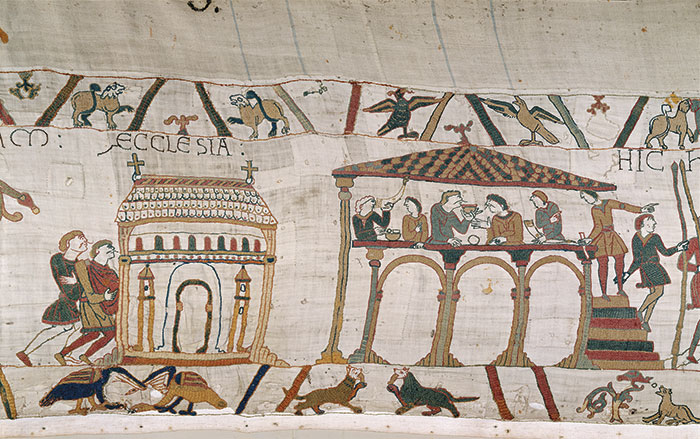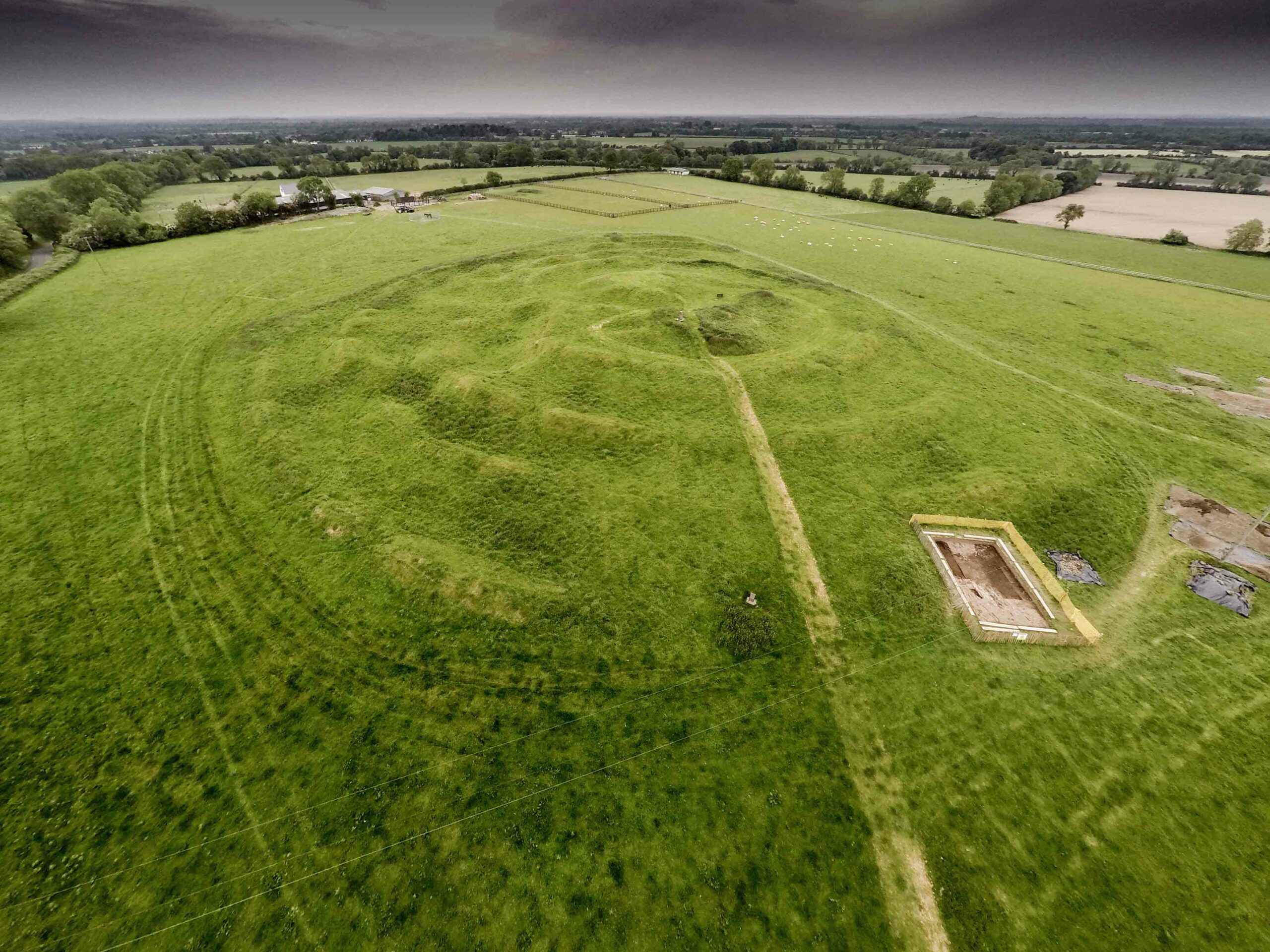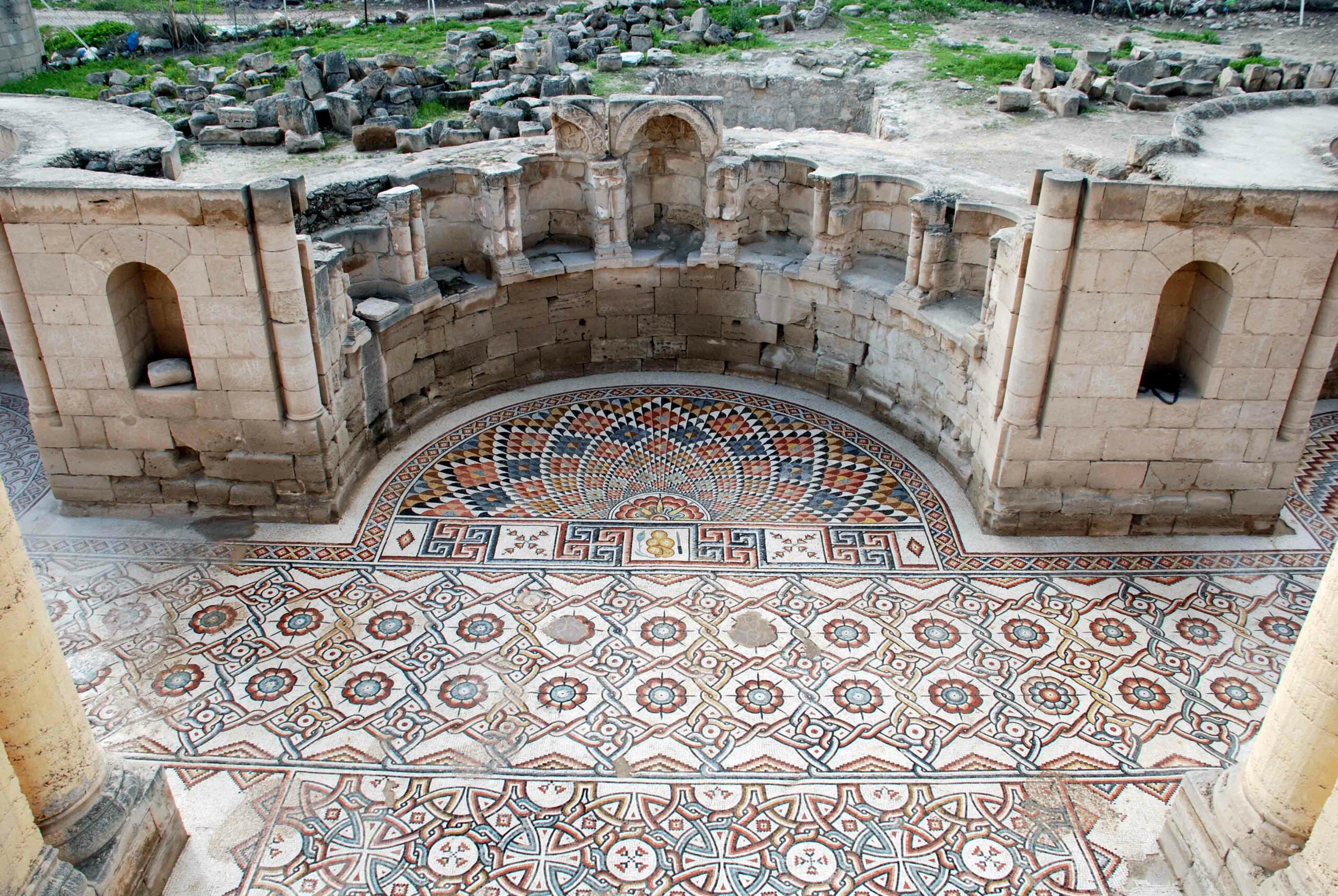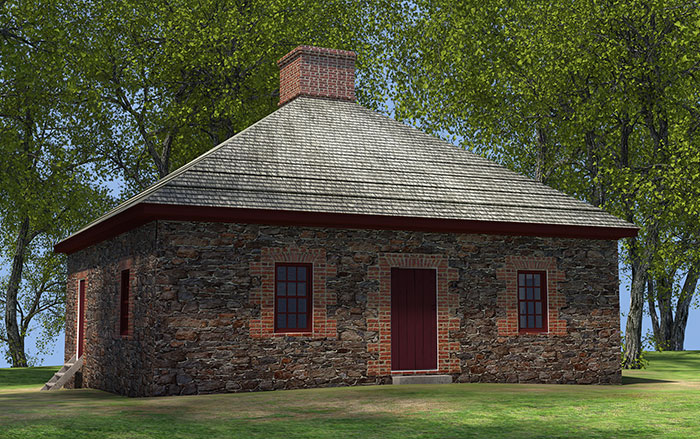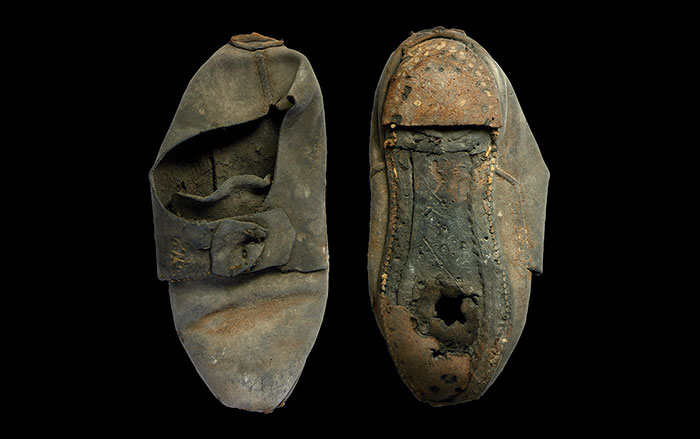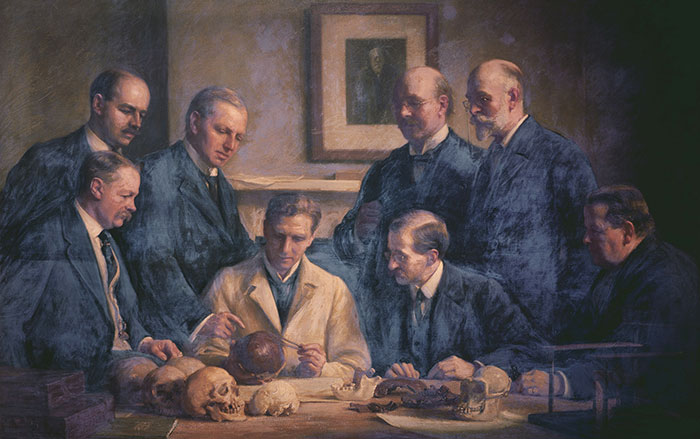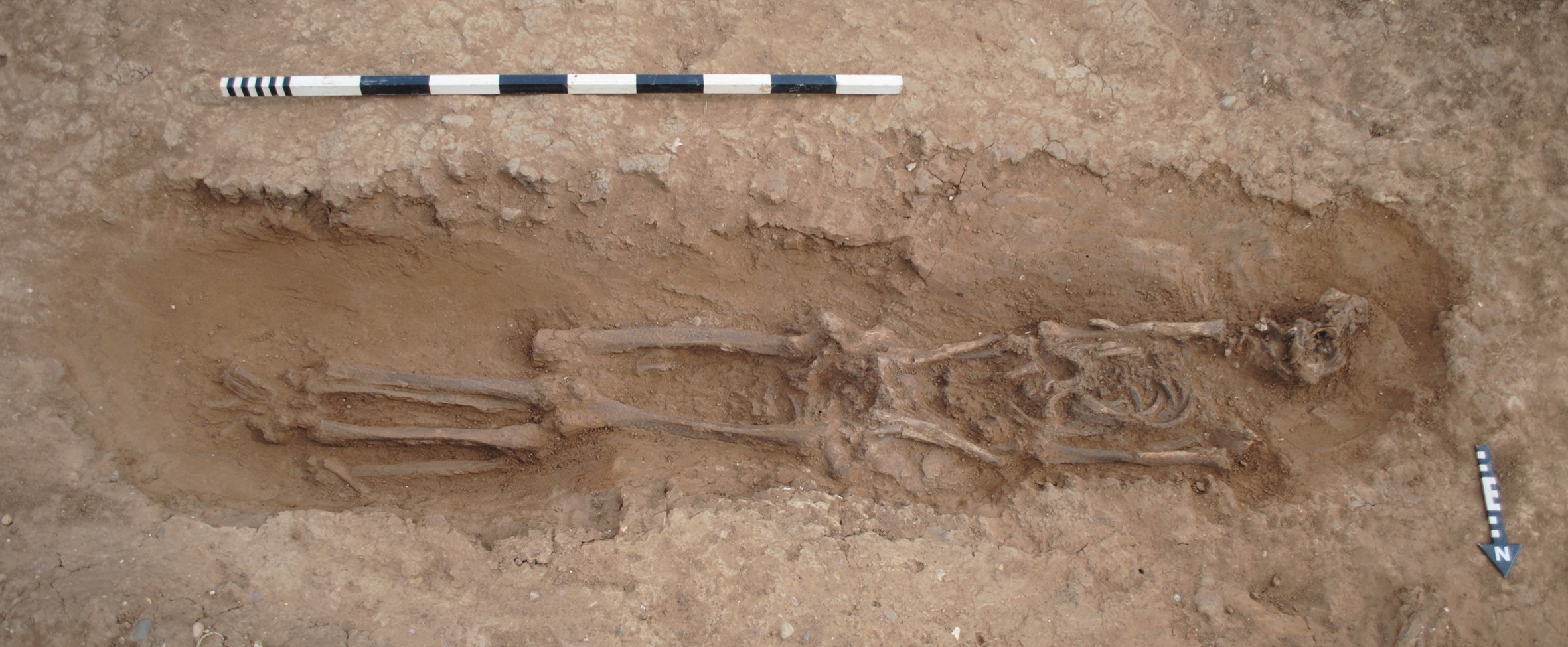
LINCOLNSHIRE, ENGLAND—According to a report in The Grimsby Telegraph, a team of researchers from the University of Sheffield is continuing to investigate an Anglo-Saxon site in the village of Little Carlton that may have been an island monastery or trading post. Archaeologist Hugh Willmott said that the team recently found the remains of a person buried face down in a narrow grave. The body is thought to have been placed in the grave after it had started to decompose, since its legs are facing the wrong way. “A great deal of care has been taken in this burial,” Willmott said. “So this could be an individual who perhaps has died away from the site and been brought here to be interred here specially.” Such an individual may have been royalty or a holy person. The site has also yielded writing implements, hundreds of dress pins, a lead tablet bearing a woman’s name, imported glassware, and seventh- and eighth-century coins, and is thought to have been abandoned in the eighth century due to Viking raids. To read in-depth about an Anglo-Saxon kingdom, go to “Letter from England: Stronghold of the Kings in the North.”


